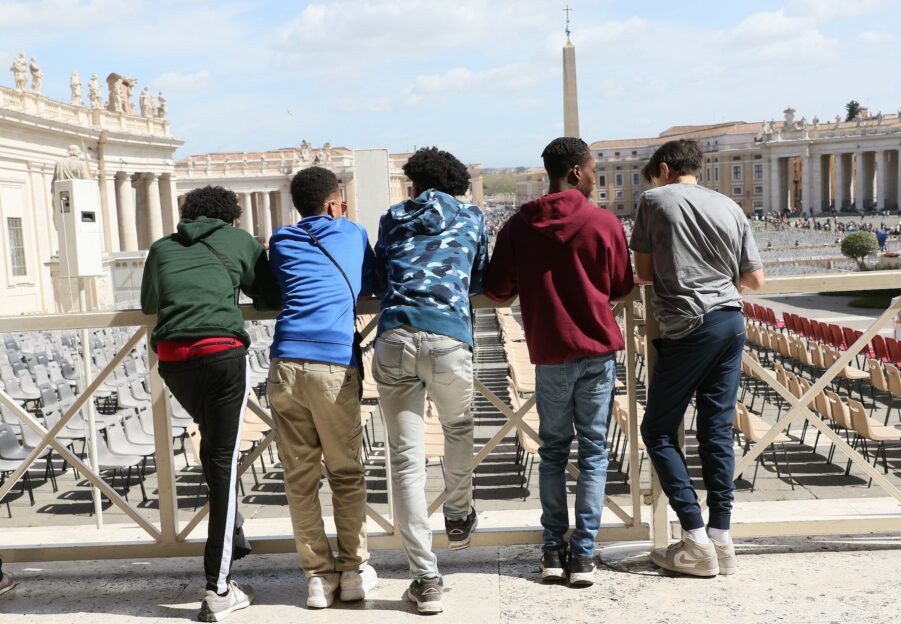Upper School
Upper School Student Life
Cultivating a strong sense of self-advocacy in our upper division students
Mary McDowell Friends School is more than a school, it is an empowering learning environment with a strong sense of community. Our array of programs, from weekly clubs to international travel, offers our students learning experiences that they remember for the rest of their lives.
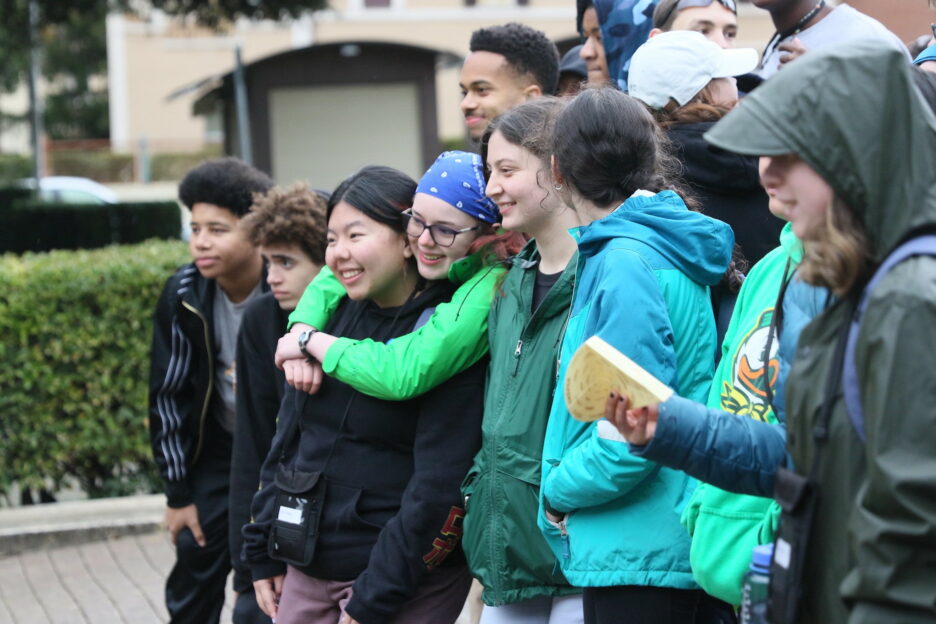
Advancing to upper school brings increased independence and exciting new opportunities, all within the greater MMFS community. Upper school students continue to participate in Silent Meeting twice a week.
Advisory
Each year students are assigned an advisor who supports them in a variety of ways. Advisors help them develop personal responsibility and work through social and emotional issues. Students build self-esteem and the confidence to advocate for themselves while taking the risks inherent in learning new information. By the time students graduate, they are well prepared and skilled in self-advocacy and empowered to take their next chosen steps.
College Guidance
As a college preparatory school, our college advisory program is a key element of our upper school program. We are preparing students to think about their future beyond MMFS for years leading up to college application and decision time. All students have access to a college advisor, interview preparation workshops, and intensive training and portfolio review for those wishing to apply to competitive college arts programs.
Our college guidance team is extremely well-versed in matching college and university programs around the country with the needs of each of our students. They work closely with students as they progress through the upper school, so that students are prepared and supported through the college application and interview process.
Learn more about our College Guidance program.
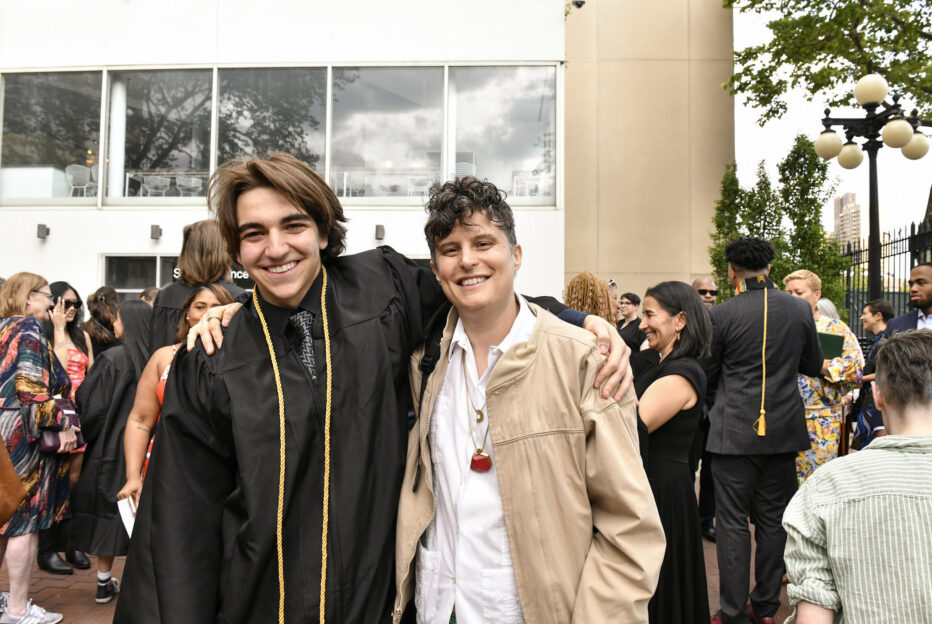
Clubs
Clubs are open to all students and take place regularly. They give our students the opportunity to develop skills and explore interests outside the scope of their regular courses. Standing clubs that are integral to student life at our upper school include the Student Leadership Team, Quaker Life Committee, and Brave Space.
Clubs reflect the varied interests of our student body. Some examples of student-led clubs are Collaborative Work Space, Dungeons & Dragons, and the Asian Student Union. Faculty members also form clubs, including Journaling & Poetry, Soccer Tennis, Chess, and Open Art Studios, and many of their suggestions have led to new skills and interests for students.
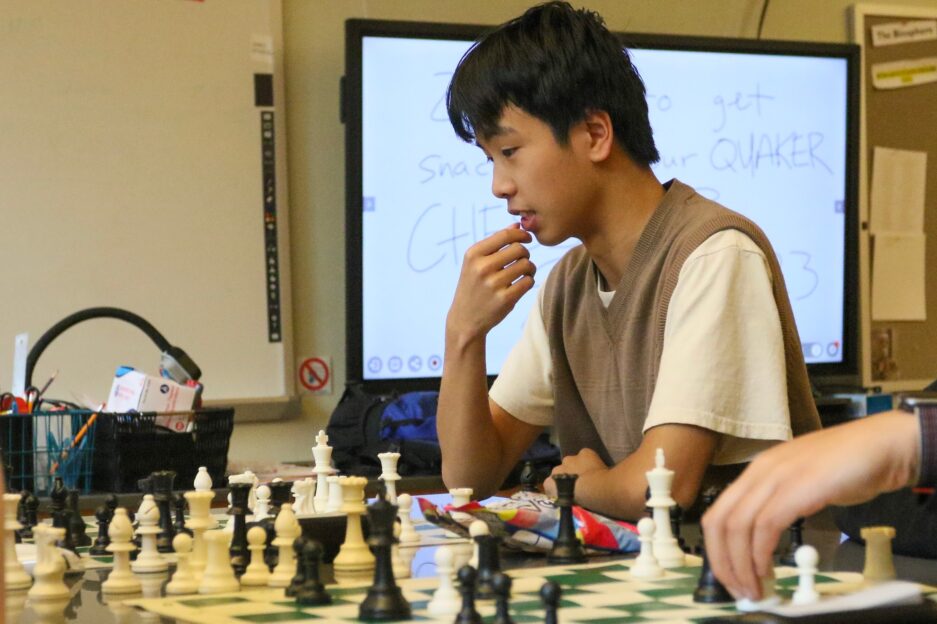
Co-Curriculars
The goal of MMFS’s co-curricular program is to promote learning for the sake of learning. Each student selects and is enrolled in a co-curricular three times per year. Recent co-curriculars include the History of Hip Hop, Portfolio Development, Dissection & Microscopy, Investing 101, and Model United Nations.
Retreats
We start each school year by bringing the entire upper school, students and faculty, on a two-night retreat to kick off the new school year. These annual retreats build community, engage students in their transition to upper school student life, and, eventually, prepare them for life outside of school.
These retreats provide a safe space for students to talk about their particular learning disabilities, if they choose to, and to learn more about what it means to attend a Quaker school. The conversations that happen here help build relationships that grow throughout the year. Students learn about the characteristics of leadership and discuss the leadership roles they have in the upper school community. On these trips, teachers also begin the conversation with older students about preparing to transition out of the upper school and what that can mean for each student.
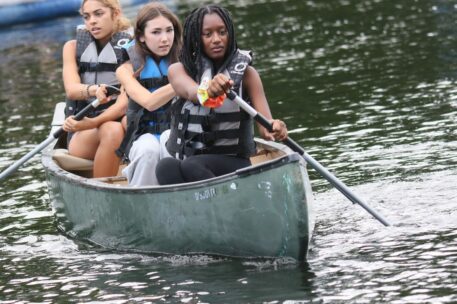
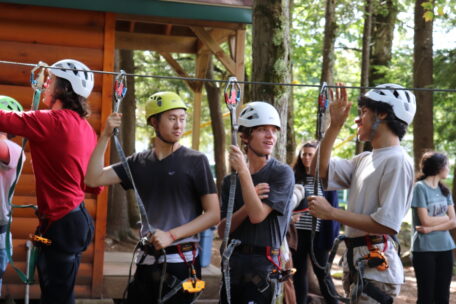
Travel
Fostering a global perspective and respect for all cultures is a high priority at MMFS. One of the ways we promote this global perspective is through international travel, which builds on the themes students are studying and exposes them to a variety of international cultures.
Tenth-grade students take a week-long trip to Europe in the spring, studying art, history, and culture. Every other year, eleventh and twelfth grade students have the opportunity to go on an international trip during spring break. Some examples of past destinations for juniors and seniors are Vietnam, Cambodia, Japan, and Italy. In 2023 eleventh and twelfth grade students traveled to Puerto Rico for the upper school’s first Spanish language immersion trip.
Travel gives students the opportunity to explore different cultures and languages with the support of teachers who know and understand them. It is a powerful experience for students with learning disabilities. Travel helps students understand the context of their own communities and helps them gain independence and confidence in their ability to navigate the world. For many of our students, this is a life-changing experience and one that shapes their own future possibilities.
